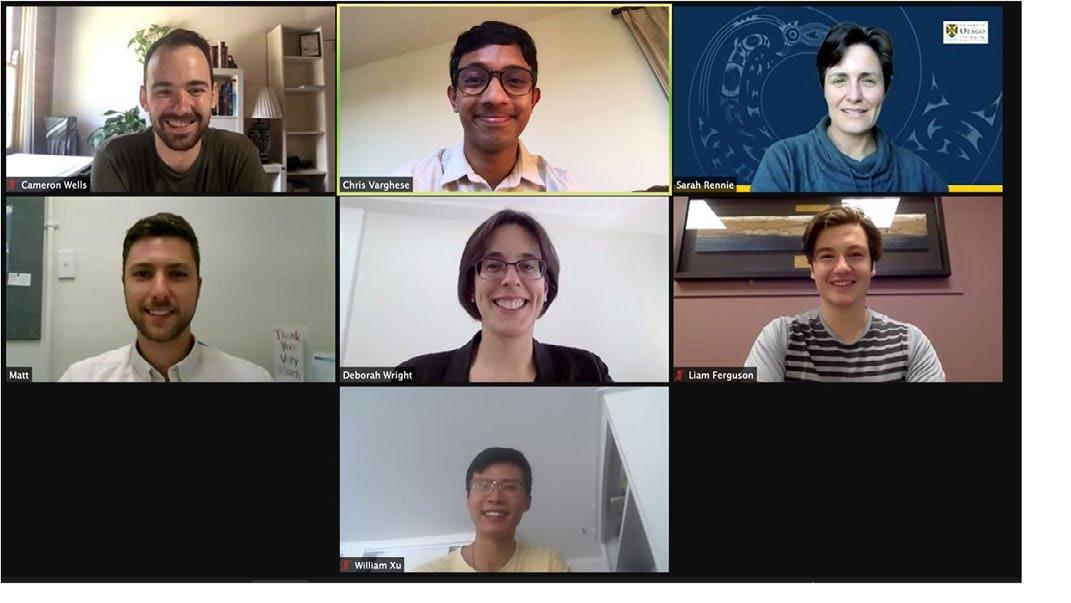Surgical News | Volume 21 | Issue 02
Introducing our New Zealand surgical advisors Introducing Dr Sarah Rennie and Professor Spencer Beasley, the Royal Australasian College of Surgeons (RACS) New Zealand’s two new surgical advisors.
to contact us, raise concerns, ideas to improve the College, ways we can advocate for our diverse population in Aotearoa New Zealand and work towards health equity.
Dr Rennie and Professor Beasley replace Mr Richard Lander, former New Zealand Executive Director of Surgical Affairs. The new part-time positions are designed to make the workload more manageable for active Fellows and enable a wide range of experience to be brought to the roles.
“Some surgeons feel removed from our College and uncertain about its relevance to them. Many have had bruising experiences as Trainees,” continued Dr Rennie. “However, being involved with the professional development wing of the College over the last seven years has enabled me to appreciate how passionate some Fellows and staff are about ensuring quality continuing surgical education across a wide spectrum of the College competencies.”
As Surgical Advisors, Dr Rennie and Professor Beasley support Fellows, Trainees and Specialist International Medical Graduates (SIMGs) on the pathway to Fellowship who are experiencing difficulties, advocate for them through a range of forums, and provide advice to RACS Aotearoa New Zealand National Committee. “Ultimately our role is to embody the RACS values: service, integrity, respect, compassion and collaboration,” says Dr Rennie, a general surgeon. “I hope that we can provide a safe space for people
Dr Sarah Rennie and Professor Spencer Beasley.
Professor Beasley, a paediatric surgeon, says since taking up their new roles late last year, he and Dr Rennie “have been very quickly acquiring an understanding of some aspects of College function, things of which we had little knowledge previously. It has opened up new insights into how our College works. The most enjoyable part so far has been re-establishing connections and relationships with friends and
colleagues and getting to know a whole lot more. “Although we remain Fellows of the College, we are now College staff and as such our relationship with other Fellows is altered. So is our role on the various boards and committees. We are there to support Fellows of our College and provide advice as required.” Professor Beasley has carried out many roles both within his specialty society and at the College for the last 30 years, including being a RACS Councillor, Chairman of the Court of Examiners and Deputy Censor-in-Chief. “During my long association with our College I have come to deeply respect what it does for surgeons and for surgical training,” he said. “It has been highly effective in representing our specialties at multiple levels, and the quality of its specialty training programs has been a major reason that surgery is of such a high standard in both countries. But challenges remain, as do opportunities to improve what we do.”
27

























